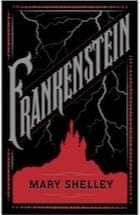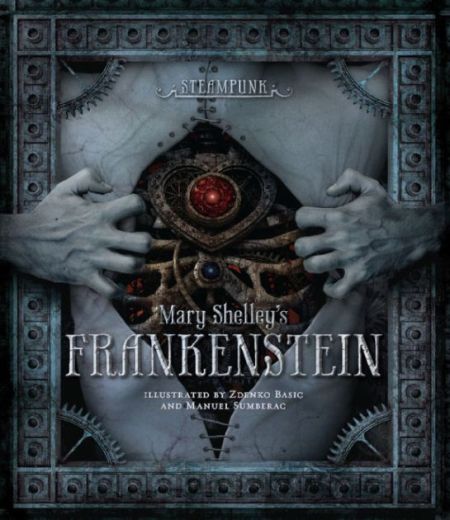I
left off with the book telling the story of the creature since
leaving Frankenstein. When the creature meets Victor in the hills, he
says something quite interesting that gives some insight into how he
views himself. “Remember
that I am thy creature; I ought to be thy Adam, but I am rather the
fallen angel, whom thou drivest from joy for no misdeed”
(Frankenstein, Shelley). I like this, because it draws an
interesting comparison between the God creating the Angels and Victor
creating his monster. The power to create life is often referred to
as a power that only God should have; but here Victor carelessly
creates a life. The monster wants to see himself as “Adam” but
the people he interacts with often refer to him as a monster. Leading
him to believe that he is not an Angel of God but the fallen
angel, Lucifer. As someone who is not Christian and hasn't read the
Bible, I am not qualified to discuss the comparison and what it means
for the characters in Shelley's novel. I just find it to be
interesting, pairing well with the philosophy of the story.
He
went to the mountains and lived in a hovel in the woods and spent his
time observing a family in a cottage. He taught himself how to speak
words and observed their behaviors. The creature realizes that the
family have something that he doesn't. A companion, someone to love
him. When he confronts the family hoping they will understand him, he
is welcomed with terror and disgust. This is what drives the creature
to hate people. He then sets his revenge on Victor. Trying to draw
Victor to Geneva, the monster runs into Victor's brother William, who
reacts by screaming, despite the creature amiable greeting. The
creature decides to kill him, takes a piece of jewelry then runs into
a barn where he finds Justine asleep. At first attracted, he feared
she would not respond well to him, so he placed the jewelry in her
pocket, framing her for the murder. And then his story catches up
with Victor's. The Creature asks Victor to create a companion for
him, and Victor ultimately decides not to, so the monster threatens
Victor.
“Victor’s
eventual refusal to satisfy his creature by completing a female
companion for it — allegedly to prevent the couple from hurting
other humans and from having offspring — is not a sincere ethical
stance but rather a self-serving attempt to control both women and
the creature” (Segal, ). This is interesting because Victor reason
for not creating a second creature is that the new one might not want
to be as benevolent as the old. And if the new creature starts
killing then, Victor cannot live with that on his already guilty
conscious.
The
book is less about the creature itself and more about Victor's
experience creating the monster and his responsibility or lack of
when dealing with the monster. “Victor builds an eight-foot-tall
being simply because larger body parts are easier to work with. He
never ponders his creature’s appearance until he brings it to life”
(Frankenstein, Shelley). This shows that Victor never
considered how the monster would fit in to the world, but merely
focused on the science of bringing it to life.
One
thing upon finishing the book that occurred to me, was the idea of
who in the story is the true monster? We are to believe that the
creature is the monster, but it is only his hatred by people that
causes him to be violent. Had the family in the woods responded to
him with kindness, and if William had not screamed, then would the
creature have need to kill anyone? An interesting topic that is still
relevant to this day. Is it society that creates the monster? Rather
than violence and hatred being an inherent trait within the creature.
Victor's own reaction to his creation is what drives the creature
away into hiding, but it's not what made him kill. And while Victor
feels guilty over the deaths of his brother and Justine, it's not
enough to undo what the monster has done. Victor does blame himself,
but he blames himself for the creation and not how he treated the
creature, I find that to be telling of Victor's true nature.
After
finishing the book, I think that Shelley was ahead of her time with
the themes that she wrote about. The language is unique to the time
period in which it was written but the story very much feels like
something that would be relevant today. Now that I have read both
Dracula and Frankenstein, I'll say that Frankenstein was a bit more
ambitious with it's themes, but I prefer the characters in Dracula
much more. There's really no character that we get to know well, in
this book and as a result I don't really like any of the character,
besides maybe the monster. The story plays with a duality of Victor
and the monster but I think I side with the monster.
Much
like Dracula my expectations of this book were very different. Pop
culture and the movies have made these stories about the horror of
the monsters but really they are character studies and deal with
issues in society. At some point I'll revisit this book and gain a
better appreciation for it, I am proud that I finally read this
staple of American Literature and one the most influential writers of
the science fiction genre.
Let me know what you think of the book in the comments below!
Works
Cited
Segal,
HP. “Victor and Victim - The True Message of Frankenstein Is about
Morality, Not Mad Science.”NATURE,
vol. 412, no. 6850, p. 861.
EBSCOhost,
search.ebscohost.com/login.aspx?direct=true&db=edswsc&AN=000170689000023&site=eds-live&scope=site.
Accessed 12 Oct. 2019.
Shelley,
M. W. (1818). Frankenstein,
or the Modern Prometheus.
London, England: Lackington, Hughes, Harding, Mavor & Jones.
CW
Arrow/Flash Crossover podcast leading up to Crisis on Infinite Earths




